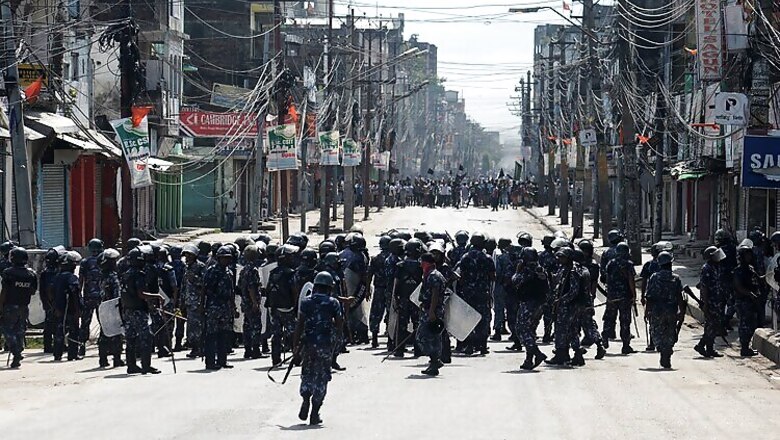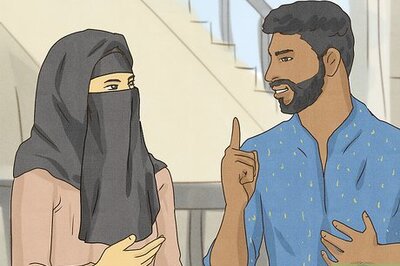
views
Protests against the new Constitution in Nepal have intensified with one member of Sadbhavana Party even committing suicide. Nepal Police has also increased its presence along the border.
Firing has started in Garur chowk of Rautahat district and one person has been killed in Birgunj. There are huge demonstrations being held in Birgunj and copies of the Constitution are being set on fire.
There has also been a bomb blast in Lamki in Kailali district. Three persons have been injured in Mahabir Chowk in Biratnagar in police firing.
Madhesi leader has also been injured in police firing in Sarlahi district and the protesters have alleged that government is treating them like immigrants.
Meanwhile, India has taken a tough stand on Nepal approving a new constitution, saying amendment is the only option for the neighbouring Himalayan nation. The opinion has been conveyed to Nepalese leaders by India’s envoy to the country.
Nepal had assured India that the concerns of Madhesi people would be taken into consideration before the new constitution is adopted. The assurance was reportedly given at the highest level.
Prime Minister Narendra Modi was assured by all major parties. Former Nepal prime minister Prachanda and Congress leader Sher Bahadur Deuba had personally assured PM Modi that the issue would be taken care of.
The Indian establishment feels that the Nepalese leaders are "pushing their luck too far". India has said in a statement it is concerned by the clashes near the border and has called for differences to be resolved "through dialogue in an atmosphere free from violence and intimidation".
There is widespread tension in the Terai region which borders India as it could force people to migrate to Bihar and Uttar Pradesh. Police spokesman Kamal Singh Bam said protests had been held in several parts of the Terai, where some lawmakers' homes had been vandalised, although the rest of the country was largely calm.
According to reports, the Indian embassy in Nepal warned the Ministry of External Affairs in India about the possible backlash but the warnings were ignored. The Foreign Secretary was sent as the PM's special envoy but by then the voting on the new constitution had ended.
In what is being considered as a big headache for India is that China has come forward to welcome Nepal's new constitution.
The move to create a new federal structure that will devolve power from the centre has widespread support, but critics say the planned internal borders will leave some historically marginalised groups under-represented in Parliament.
They include the Madhesi and Tharu ethnic minorities who mainly inhabit Nepal's southern plains, along the border with India.
"In this happy moment we have been unable to include half of Nepal's population," said senior Maoist leader Baburam Bhattarai, a former prime minister, referring to the densely populated southern region known as the Terai.
"It is not time for us to celebrate yet."
The work on the constitution began in 2008 after the Maoists won parliamentary elections and abolished the monarchy.
It was initially supposed to finish by 2010, but the Maoists were unable to secure enough support for the two-thirds majority needed to push it through parliament.
The three biggest forces in Parliament -- the Nepali Congress, UML and Maoist parties -- finally reached agreement in June, spurred by a 7.8-magnitude earthquake two months earlier that killed nearly 8,900 people and destroyed around half a million homes.
But there has been strong opposition from some quarters, including Hindu groups who do not believe Nepal should be a secular state.
Rights groups say it discriminates against women by making it more difficult for them to pass on citizenship to their children than it is for men.
Hundreds had gathered on Sunday outside Parliament in Kathmandu, which was decked out in balloons and Nepali flags. The mood on the capital was broadly celebratory although there were some protests early on Sunday by political groups who oppose the charter.
Critics say it does too little to empower minorities, and many took to Twitter to voice their disapproval under the hashtag #notmyconstitution.


















Comments
0 comment